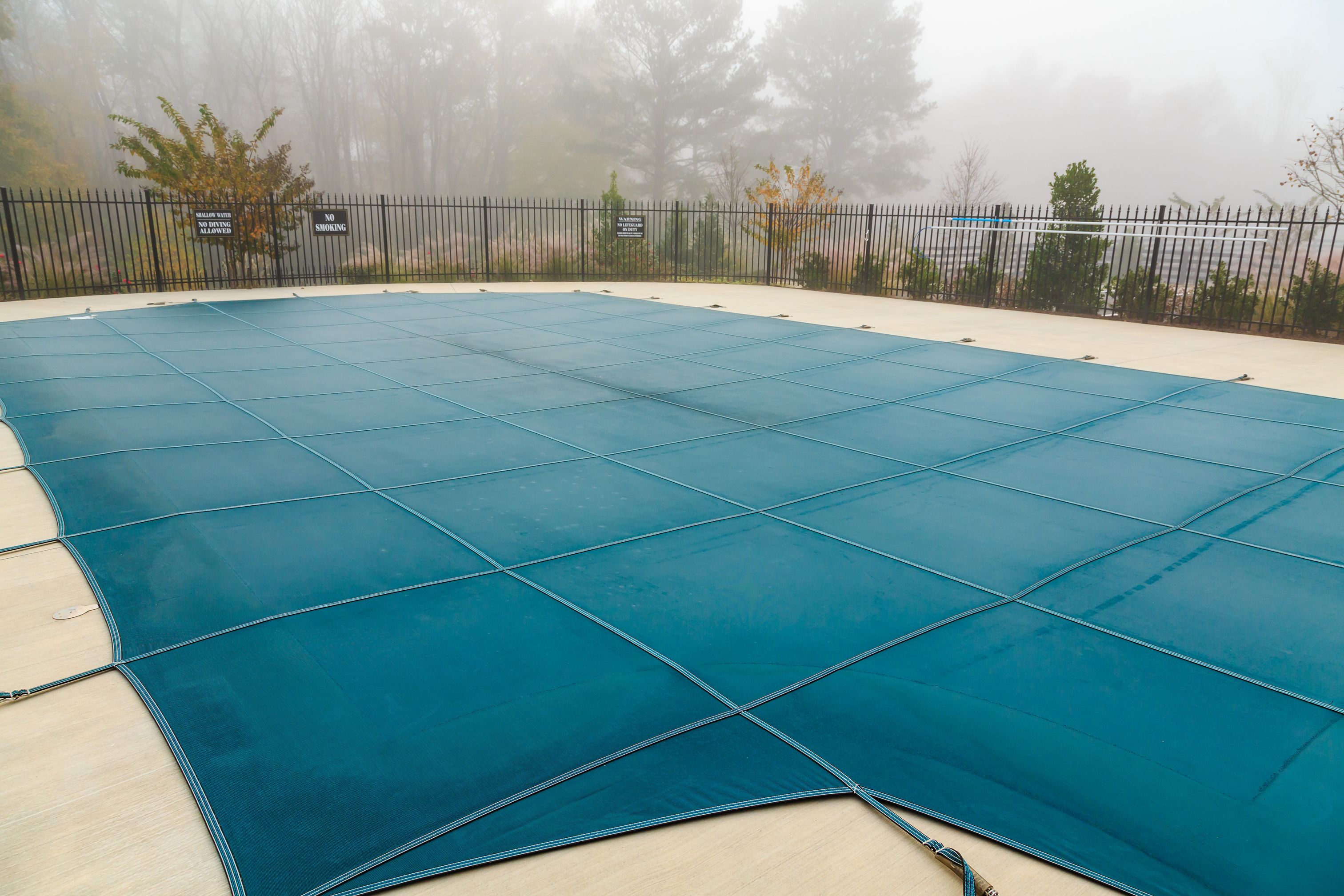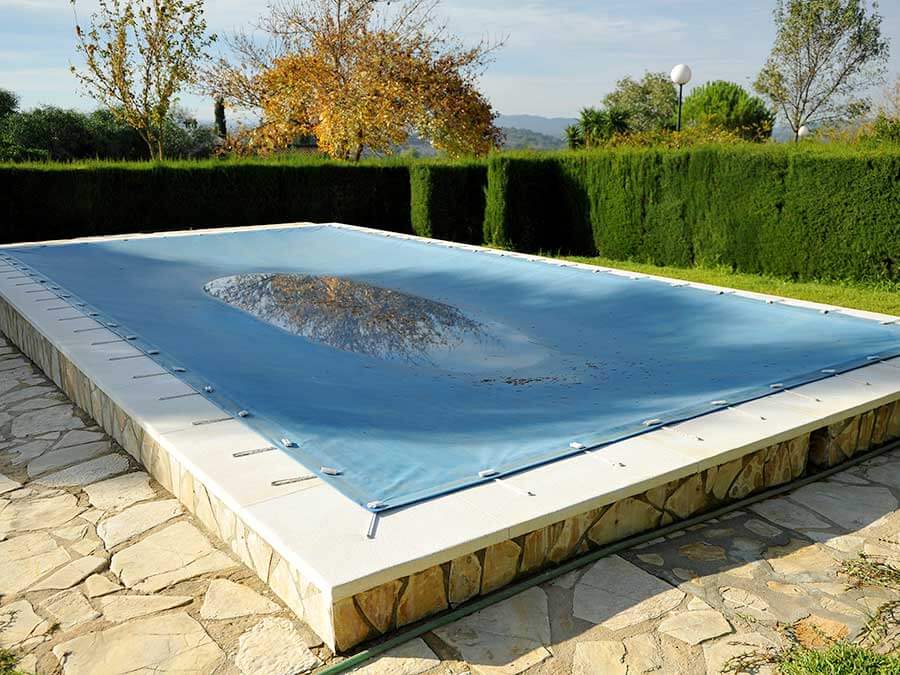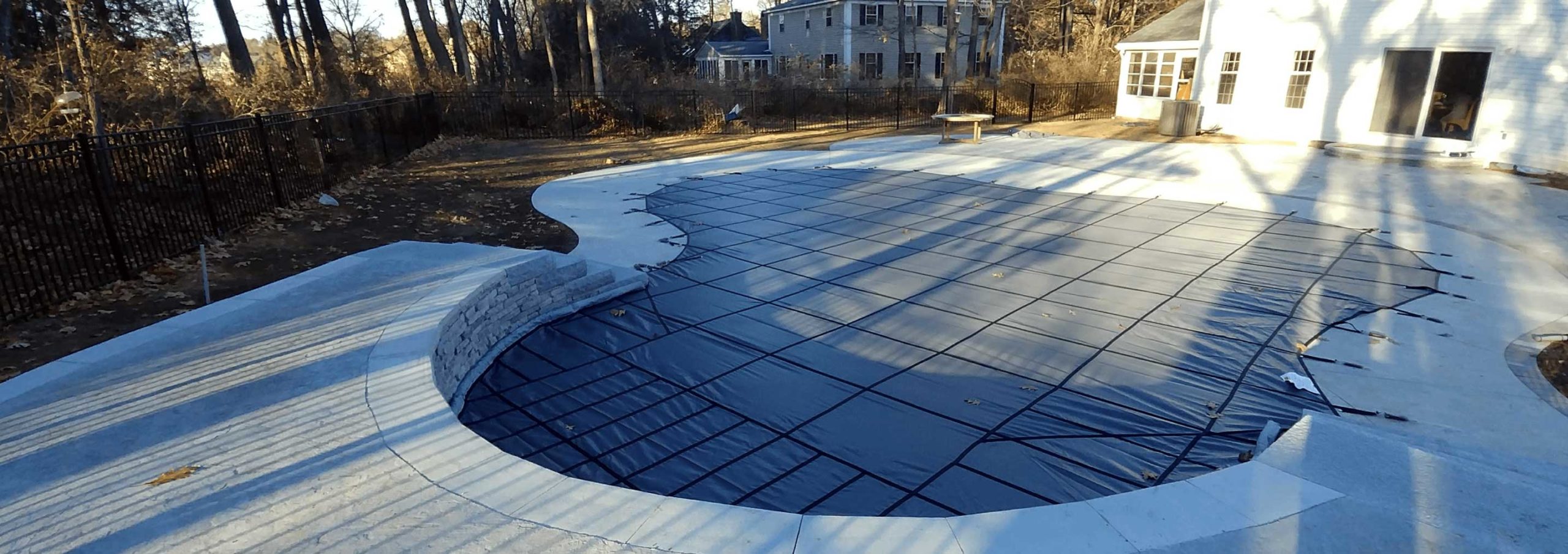To winterize a pool, remove debris, balance the water chemistry, lower the water level, drain the equipment, and cover it with a pool cover. Preparing your pool for the winter months is crucial to protect it from the harsh weather conditions.
Winterizing involves a series of steps that will ensure the pool remains in good condition until the warmer months return. By removing any debris, balancing the pool’s water chemistry, lowering the water level, draining the equipment, and covering it with a pool cover, you can safeguard your pool and extend its lifespan.
This article will guide you through the process of winterizing your pool, providing valuable tips and insights to make the task easier. Read on to learn how to properly prepare your pool for the winter season.

Credit: www.popularmechanics.com
Preparation
Preparing a pool for winter is crucial to protect it from harsh weather conditions. Proper preparation includes cleaning the pool, balancing chemical levels, and safeguarding equipment to ensure it remains in good condition during the colder months.
Cleaning The Pool
Thoroughly cleaning the pool before winterizing is essential to prevent algae growth and bacterial buildup. Use a pool brush and vacuum to remove debris and scrub the walls and floor. Additionally, skim the surface to clear any floating leaves and insects.
Balancing Chemical Levels
Ensuring proper chemical balance is crucial in preventing staining and maintaining water clarity. Test the water to adjust pH and alkalinity levels, and add winterizing chemicals as necessary. Shock the pool to eliminate any remaining contaminants and ensure the water is clean when the cover is applied.
Equipment
When it’s time to winterize your pool, knowing how to properly prepare and store your equipment is essential to keep everything in good condition for the next season. From removing and storing pool accessories to ensuring the pool is adequately covered, taking care of your equipment will save you time and money when the warm weather returns.
Removing And Storing Pool Accessories
Before winterizing your pool, it’s crucial to remove and store the necessary accessories properly. Here’s how to handle some common pool equipment:
- Clean and store pool ladder and handrails in a dry place to prevent rust and corrosion.
- Drain and winterize any pool pumps, filters, and heaters according to the manufacturer’s instructions to avoid damage from freezing temperatures.
- Remove and store pool toys, floats, and any other loose items that may get damaged during the winter months.
Covering The Pool
Once all the equipment has been removed and stored, it’s time to cover the pool. This critical step protects the water and pool surfaces from the harsh winter elements. Here’s what you need to do:
- Thoroughly clean the pool to remove any debris and balance the water chemistry.
- Install a durable pool cover that fits securely to prevent leaves, dirt, and other debris from entering the pool.
- Secure the cover with the appropriate hardware to prevent it from coming loose during winter storms.
- Regularly check the pool cover throughout the winter to ensure it remains in place and is doing its job effectively.
Plumbing
Properly winterizing your pool’s plumbing is crucial to prevent damage from freezing temperatures. This process involves two key steps: Draining the Pipes and Winterizing the Pipes.
Draining The Pipes
To begin, turn off the pool pump and filter system. Next, locate the drain plugs on the pump, filter, and heater. Carefully remove the plugs to allow any water trapped inside to drain out. Additionally, open any valves to release water trapped in the pipes. Ensure all water is drained completely to prevent freezing and potential damage.
Winterizing The Pipes
After draining the pipes, flush them with an antifreeze solution to protect against ice formation. Use pool-safe antifreeze to avoid any harmful effects on the pool system. Make sure the antifreeze circulates through all plumbing lines to provide thorough protection. Finally, seal off the pipes to prevent any moisture or debris from entering.
Winter Maintenance
Ensuring proper winter maintenance is essential for protecting your pool during the cold months. By taking a few extra steps, you can minimize potential damage and save yourself from costly repairs in the spring. In this section, we will discuss two crucial aspects of winter maintenance: regular inspection and snow and ice management.
Regular Inspection
Performing regular inspections throughout winter helps you catch any issues early on, preventing them from becoming major problems later. Here are a few key areas to focus on during inspections:
| Inspection Points | Action |
|---|---|
| Pool Cover | Check for tears, holes, or any signs of wear. Repair or replace as necessary to maintain proper cover and protection. |
| Pump and Filter System | Ensure they are properly winterized, drained, and stored in a protected area. This prevents freezing and damage to these crucial components. |
| Chemical Levels | Monitor and adjust the chemical levels as needed to prevent imbalances that could lead to water quality problems. |
By regularly inspecting these areas, you can address any issues promptly and maintain the integrity of your pool during the winter season.
Snow And Ice Management
Snow and ice can cause significant damage to your pool if not properly managed. Here’s what you need to do:
- Remove snow from your pool cover using a soft broom or a snow rake to prevent excessive weight build-up.
- Keep an eye on the water level; heavy snow can cause it to rise and lead to overflow.
- Avoid using sharp tools to break ice; they can damage both the pool and the cover. Instead, use a winterizing chemical treatment to prevent ice formation.
Regular snow and ice management will help keep your pool safe and protected throughout the winter.
Protective Measures
Winterizing your pool is crucial to protect it from the harsh cold weather. Take the necessary steps to ensure your pool is well-prepared, including draining the water, cleaning the filters, and covering it with a durable pool cover.
Using Pool Antifreeze
When draining your pool, use pool antifreeze to prevent freezing damage.
Protecting Pool Liner
Cover your pool with a durable tarp to shield the liner from harsh winter conditions.
Professional Help
Professional help in winterizing your pool can offer a stress-free and effective solution. Considering professional pool closing services can save you time and effort, ensuring that your pool is properly prepared for the winter season. Let’s explore the benefits of seeking expert assistance for winterizing your pool.
Considering Professional Pool Closing Services
Professional pool closing services involve a team of trained experts who are well-versed in the intricacies of winterizing pools. They have the knowledge and tools necessary to ensure that your pool is effectively winterized, minimizing the risk of damage during the colder months. Additionally, professional pool closing services can provide you with peace of mind, knowing that your pool is in capable hands.
Benefits Of Expert Assistance
- Professional expertise in winterizing pools
- Minimization of potential damage during the winter
- Peace of mind knowing the pool is properly cared for
- Time and effort savings for the pool owner
Final Tips
Final Tips:
Dealing With Debris
Regularly remove leaves and debris to prevent build-up.
- Use a skimmer net to clear the surface easily.
- Invest in a pool cover for added protection.
Monitoring Pool Throughout Winter
Check pool water levels to avoid freezing and damage.
- Utilize a pool water level sensor for accurate readings.
- Inspect the pool equipment for any signs of issues.

Credit: www.sunsetpools-spas.com

Credit: www.lathampool.com
Conclusion
Keeping your pool safe during winter is essential. By following the tips in this guide, you can protect your pool and equipment from damage. Remember to regularly check and maintain your pool throughout the winter months. Proper winterization will ensure your pool is ready for swimming when warmer weather returns.




